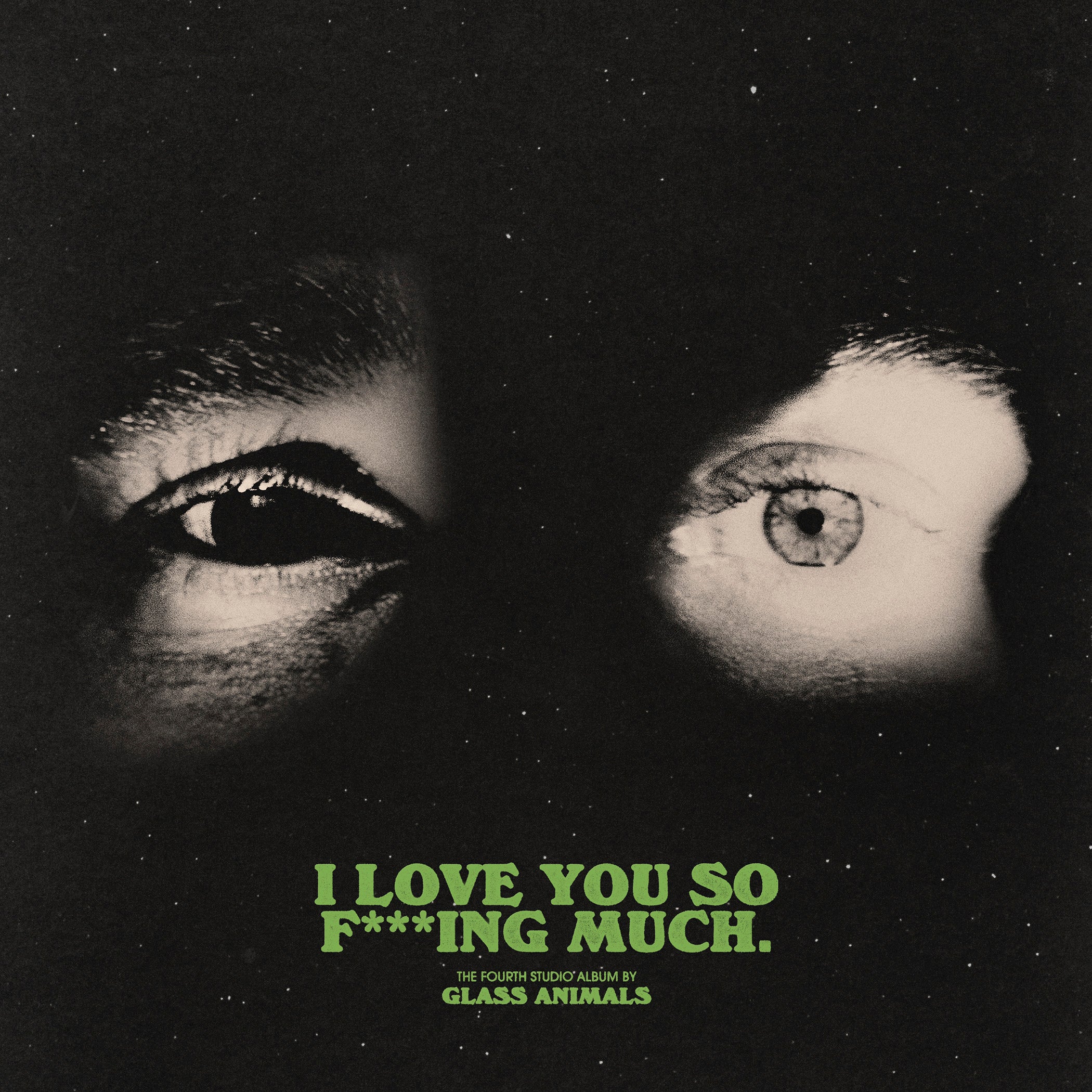Glass Animals: ‘I played Heat Waves for Rihanna’s manager – but I’m grateful it didn’t go further’
Their 2021 synth-pop anthem made Glass Animals the most successful British band in the US since the Spice Girls. Four years later, they’ve figured out how to follow it. Frontman Dave Bayley sits down with Annabel Nugent to chat about the new album, his near-death experience on a hilltop Airbnb – and all things love


Your support helps us to tell the story
From reproductive rights to climate change to Big Tech, The Independent is on the ground when the story is developing. Whether it's investigating the financials of Elon Musk's pro-Trump PAC or producing our latest documentary, 'The A Word', which shines a light on the American women fighting for reproductive rights, we know how important it is to parse out the facts from the messaging.
At such a critical moment in US history, we need reporters on the ground. Your donation allows us to keep sending journalists to speak to both sides of the story.
The Independent is trusted by Americans across the entire political spectrum. And unlike many other quality news outlets, we choose not to lock Americans out of our reporting and analysis with paywalls. We believe quality journalism should be available to everyone, paid for by those who can afford it.
Your support makes all the difference.It used to be that you couldn’t go anywhere without hearing “Heat Waves” by Glass Animals. The song, for some months in 2021, and then many more in 2022 thanks to a lightning-in-a-bottle moment of TikTok virality, was inescapable: its sultry hip-hop-inflected psych-pop piped out of every phone speaker, car stereo, and TV sound system within a one-mile radius. Frontman Dave Bayley’s slurried vocals slipping into the grooves of your brain as easy as sweat drips down your brow.
Along with Normal People, Ted Lasso, and The Oscars Slap™, it was one of few things that cut through the Covid smog – its Malibu-scented nostalgia resonating with listeners enduring seismic upheaval. It reached No 1 in five countries, cracking the top five in several more. Ironically, it was in the US that the Oxford indie outfit – comprising Bayley and his childhood mates, drummer Joe Seaward, guitarist Drew MacFarlane, and bassist Ed Irwin-Singer – found the most success: five weeks at the top after a record-breaking 91-week ascent, the longest-running Brit-born hit since the Spice Girls. As hit songs go, it was a biggie.
“F***,” was Bayley’s first reaction when the dust finally settled. “I joked that I might quit – you know, leave on a high – but I realised commercial success was never the point,” he smiles, speaking from an ergonomic office chair in his east London studio. The capital is in the middle of a heatwave of its own the day we meet, though you wouldn’t know it looking at Bayley, who cuts an angular figure in an oversized blazer, tailored slacks, and loafers with socks. It has taken Bayley four years to come up with a follow-up worthy of “Heat Waves”; this week, Glass Animals release the smooth, summertime-ready I Love You So F***ing Much.
On it, Bayley asks a crucial question: “What do you think about when you think about love?” Unspooling a catalogue of stories, his own and otherwise, Bayley answers his own question. “Show Pony” is a fuzzed-out pop song about when you’re a child and you witness your first blueprint for a relationship; “How I Learned to Love the Bomb” is a cresting, guitar-led lament about a toxic lover; “I Can’t Make You Fall in Love Again” is a deceptively perky eulogy for an irredeemable paramour, delivered in that signature pinched falsetto of his.
Bayley’s studio looks how much of the album sounds: its gelatinous guitars, warbly melodies and cosy instrumentation mirrored in the warm glow of lamps dotted around the dimly lit room. Opposite his vast tech set-up and recording booth is a Seventies-style sofa in a shade of tangerine. A three-wick candle burns on top of the matching marshmallow-like ottoman. The inside of a lava lamp is how I can best describe the vibe.
The outside world feels distant – as if we’re in a galaxy far, far away. Bayley loves space: taped next to the door is a drawing of a rocket in blue and orange crayon; his favourite emoji is the planet. Initially, he had set out to make a “space album” in the same vein as Dark Side of the Moon, but the results left him cold. “I scrapped the whole thing,” he says. “Every time I tried to write it, it felt really cold. It felt thin and there wasn’t enough humanness. Not enough heart, or soul.”
The new record, their fourth, has more emotional scaffolding beneath it than the 2020 album, Dreamland. There are the same Day-Glo synths and hummable melodies – but they often belie something more serious, a sonic sugar cube to help get the medicine down.
It makes sense: emotions tend to run high after a near-death experience. In April last year, Bayley had set up camp in a hilltop Airbnb for a fortnight in Los Angeles, sheltering from the world with only a positive Covid test and his recording equipment for company. Then a storm hit – not your everyday storm, this was the punishing kind of downpour, downright biblical. “There was no way out,” Bayley recalls. “Or in. I didn’t know how I was going to get food; the roads were too muddy to drive. I was like, this is the end.” The owner of the Airbnb texted him to ask if he was alive. “She sent that message every day for three days,” he says. “It was genuinely scary.”

If nearly dying is good for anything, though, it’s inspiration. Within two weeks, Bayley wrote all of I Love You. “I was stuck in the house looking out and seeing all these interactions from so high up – people laughing, crying, hugging,” he says. “I was imagining their love stories and thinking about my own. It was like I was in space looking down, and actually, all of space – the bigness of it – just pales in comparison to those tiny human stories.”
Enjoy unlimited access to 100 million ad-free songs and podcasts with Amazon Music
Sign up now for a 4 month free trial (3 months for non-Prime members)
Enjoy unlimited access to 100 million ad-free songs and podcasts with Amazon Music
Sign up now for a 4 month free trial (3 months for non-Prime members)
It’s the autobiographical snippets that have Bayley feeling anxious in the lead-up to the album’s release. “I’m very conscious that there are people I don’t want to hurt,” he says, treading cautiously when I ask about the quietly devastating “I Can’t Make You Fall in Love Again”. That one isn’t about himself, is as much as Bayley will say on the subject. Likewise, he keeps shtum on his own relationship beyond the revelation that he is in one.
“There’s a side of me that’s slightly panicking about how personal it is,” he grimaces. “I feel like I’m about to walk outside naked all of a sudden. Not even all of my friends know these stories.” He played the album for his mum recently: “She asked me why I was so sad.”

In the past, Bayley would redact certain details to temper a song’s vulnerability. “There’s another version of ‘Heat Waves’ that’s really very long,” he laughs. Another way he thought of to soften the song – about missing someone and not being able to act on it – was to pass the mic to another singer. “Initially it felt too personal and vulnerable to do it myself, because the little secret in that song would be very, very strongly attached to me. And that was quite scary.”
“I had hoped it would be someone else’s song,” says Bayley. By someone else, he means that he wanted pop behemoth, mega superstar Rihanna. “It got so far that I was sitting in the Roc Nation offices, playing the song for her manager,” he says. “I ended up sending them parts of the song, but I’m grateful it didn’t go further.” He smiles, and reconsiders. “But at the same time, obviously, I’m a huge fan – I would’ve loved it.”
Though no one would know it from the final lyrics, which shimmer in generalities about “late nights in the middle of June” and an unhappy lover, still Bayley was shocked that a song so specific to him could resonate so widely. “I thought it was way too personal and vulnerable to really do what it did, so that gave me a lot of confidence,” he says.
I lost a sense of what’s important to me, which is spending time alone
I Love You wears that confidence breezily, and, while it’s unlikely to repeat the commercial success of its predecessor – hardly anything ever will – perhaps it may fare better critically, because, although streaming figures don’t lie, it’s true that critics were less than enthused about Dreamland. Adjectives like “broad appeal” and “inoffensive” aren’t strictly negative, but they are something of a barbed blessing.
“I try not to read reviews,” Bayley demurs. But it is, he admits, impossible to avoid entirely; his aunties will often send him snippets. “Or my mum will read something [bad] and say she’s going to rip someone’s face off. But in general, everyone’s entitled to their own opinion,” he says. “I love music, and that’s not going to change – but what about you? Do you read reviews other people have written?”
Bayley does this often: flips the question back on you. Warm and solicitous, he is also, by his own admission, “very shy”, a quality that directly contradicts his onstage persona: louche and limber, skipping and two-stepping for the entirety of his sets. “I always felt Daft Punk got it right,” Bayley says, nodding to the masked French electronic duo. “I’ve realised that I’m quite an introverted person. After the last record, I felt I was playing catch-up and trying to do all these things that I felt I’d missed, putting pressure on myself to be sociable all the time. I lost a sense of what’s important to me, which is spending time alone.”

Bayley grew up in the small city of College Station, Texas, the son of two scientists. He was introverted at school, preferring to communicate through music (he made a ton of mixtapes). It was when Bayley was at university studying medicine that he reached a fork in the road: doctor or musician. He chose the latter – but lied to his parents about it for a year, doing odd jobs and DJing around London clubs for money, all the while pretending he was still going to classes.
It could’ve continued that way had his friend not tragically died. “That was the deciding thing,” says Bayley. “He had always told me to pursue music. And so that was it.” (Their 2016 ballad “Agnes” is an ode to him; “You’re gone but you’re on my mind,” runs its final line.) As with his music, in conversation, too, Bayley is careful with what he divulges, holding back as much as he reveals. No one is referred to by name (Agnes is not the real name of his late friend) or fully fleshed out. It’s a reticence you don’t notice in the moment, couched as it is in a disarming familiarity and friendliness.
For a long time – six years, in fact – his parents hoped their son would see the light. “My mum would always ask me when I would go back to school,” he recalls. It was only in 2017, when Glass Animals played Radio City, a venue his mother had frequented as a teenager studying in New York, that she took the band seriously. “Though she wasn’t happy with her seats,” he laughs.
I wouldn’t have wanted to continue doing music without Joe – God, even the idea of it makes me quite sad
Bayley is leaving London, he tells me with a grin on his face, kicking the duffle bag at his feet. “The city is a lot, my house is across the street from here and walking there can take 45 minutes because I’m saying hi to people,” he says. “I love having that community and I’m happy to have found it, but I think I just need to be able to come home and switch off. I just want to go to the shop in my pyjamas.”
Indeed, it’s easy to imagine Bayley as a scientist like his parents, inquisitive and soft-spoken as he is. The spectacles don’t hurt, either. But music called, first in the form of men playing guitar (The Strokes, Nirvana, The Velvet Underground) and then as dance music – its gargantuan basslines and pleasure-centric harmonies blasting out of the clubs he frequented at university. “I got a little Casio keyboard synth and that was the beginning of it,” he says.
Parental disapproval is not the only challenge Glass Animals have had to overcome. In 2020, drummer Joe Seaward suffered a complex skull fracture in a severe cycling accident. It was touch-and-go as to whether he’d live, let alone recover. “We thought it was over,” says Bayley. “In a very real, very scary way. I wouldn’t have wanted to continue doing music without Joe. God, even the idea of it makes me quite sad.” Miraculously, Joe made a full recovery. The run-up to this album’s release has been happily without incident – if you don’t count the near-fatal storm. “Touch wood,” Bayley jokes. He does, however, reach across the room to touch the wooden table between us.

I Love You arrives with a cherry on top: liner notes by It-girl author Gabrielle Zevin, whose book Tomorrow, and Tomorrow, and Tomorrow, about gaming, love, life and how the three intersect, topped critic lists when it was released in 2022. The liner notes are comprehensive and written in the second person: one paragraph per song, ranging from quietly surreal to totally hallucinatory. “You are a sock. You are an earplug. You are a miniature glass horse,” begins the paragraph for “A Tear in Space”.
“I cried when I read them for the first time,” Bayley says. He had emailed Zevin on a whim, after noting the many parallels between their work. He spends a good five minutes singing her praises, excited to be talking about anyone other than himself. “Do you have a copy?” Bayley asks. Before I can reply, he’s already rummaging in his bag to give me his. “You can have mine.”
‘I Love You So F***ing Much’ is out on 19 July via Republic Records
Join our commenting forum
Join thought-provoking conversations, follow other Independent readers and see their replies
Comments